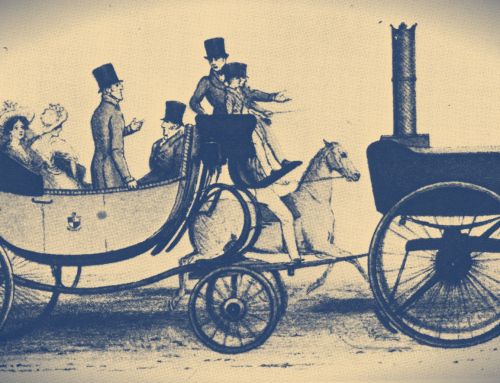In this post we will talk about the future of Human Resources in organizations. For this we will have Marco Barón, who is a facilitator, cultural designer and member of Target Teal. With more than 10 years of experience in the field (from Business Partner to Head in several organizations), he certainly has a bit to tell us about it!
Warning: this text strongly criticizes everything you know as HR “good practices” ;)
How does the HR department work today? How do you see the name “Human Resources”?
There are several names for the HR area. There are organizations that prefer to call them “People” or “People and Management”, “Human Capital”, Talent, People Operations etc. Personally, I do not like any of those names. I think they are retrograde, inaccurate, uninspiring, even if they are very obvious and leave no doubt as to which department in question. Anyway, that’s the least of the problems in the whole history of this department.
In general, the HR area continues to act with the same mindset of decades ago: to create policies and control processes that “minimize risk, organize work, and maximize organizational value.”
But not everyone in an HR area thinks so. The problem is that those who do not think that way, act as if they think. They replicate the same logic they do not believe in as they chant the irrefutable mantra of “that’s the way things work out here”. It is as if they were part of an old-fashioned and repetitive novel where the characters are always the same, with the same conflicts and varying only the actors.
In short, what I mean by that is that the HR area continues to do what it always did, with small variations. It seems to me that it is an area that still works to achieve its own goals and agenda, even if they do not directly support the development of the organization. I have lived in moments where HR dreamed of implementing an intranet that centralized all the information and exchanges of employees, or even projected a super performance evaluation tool with 9box, calibration, PDI, etc. All this while what the organization most needed was more productive contexts and safe space for people to exchange feedback without endless bureaucracies or fear of losing their jobs.
Are there inconsistencies between the way HR works and what you visualize for the future of work? Which ones?
There are a lot of inconsistencies, but I think they all relate to the fixed mindset of HR, which is often more concerned with preventing and controlling change than going towards it, adapting and learning the most from it. There are historically developed beliefs that play a lot against the evolution of HR. And this is already present in the language used, that is, it is practically invisible.
The name “human resources” translates to this. I question when someone refers to someone else as a “resource” by asking if she’s talking about a computer or a chair, just to hear her say “no! You do not understand, I’m talking about a person.”
I was hired once and the CEO told the other executive that I was a “big asset” to that organization. Asset?! Are your serious?!
The term “compensation”, for example, is about compensating someone for something. But what kind of work do I need to be compensated for? Is it that bad? Or for example when we talk about “talent retention”. Who really wants to be withheld somewhere? Retention reminds me “detention”. Or “change management”: explain to me what change can be managed in life? We can not even predict them, let alone control. As I said, the list is long and deep…
How do you see HR acting in the future?
I think change is going to start popping out there. For example, part of HR will go back to Finance (Payroll, Compensation, Trade Union Relations and Facilities) and another part will join Marketing (it makes no sense to look at the client’s journey separate from the employee’s journey, they are the same, but in different perspectives).
Another change will be in the roles and profile of professionals in the area. We need more designers and facilitators than specialists and controllers. Fewer shelf answers and more collaborative solutions to specific problems. Controllers and specialists do not sufficiently help or challenge teams in their development.
Teams are still learning to be teams. Learning to be adults working together around a common purpose. Learning to care for each other and at the same time taking responsibility for what they produce there. Facilitating this process is a great honor. Facilitating this process of discovering and overcoming impediments that arise along the way is the greatest help that can be offered to the organization. Detail: there is no formula for this. As the poet Sevillian Antonio Machado said, “the way is made walking.”
I can already see these roles with relative clarity in areas outside HR. UX professionals are dedicated to designing customer experience, prototyping solutions and creating personas to understand how to better solve the specific stories they have. Or Agile Coaches of agile software development methods that facilitate team rituals in order to help the team self-organize, overcome conflict situations, and remove any other impediment to the group’s performance.
The question then becomes: why does not HR do that already? If your answer is “looks cool, but we do not have enough time for it” or “because the band plays here otherwise”, then I invite you to stop going to HR events, stop reading books about ” Human Resources “and also stop with your MBA. Stop all this because it is not in those places where change will begin. One fine day they will all end. Without even realizing it.
How is the career plan in this new format?
The idea of ”career” needs to be recontextualized. This is an ideological construction of Generation X and baby boomers. The tendency is for people to have more and more careers of shorter time. There will be multiple roles (sometimes simultaneous), diverse repertoires and several beginnings. If you want to call these multifaceted narratives full clippings as “career”, fine.
In that context, it’s kind of weird about to ask “what career plan does this organization offer me?” Or “we need to have solid career plans to retain our top talent.” Forget it. Organizations are hubs of opportunities and talents and, often, learning accelerators. Each one is responsible for his or her own destiny. Outsourcing this only generates dependency and resentment. Just as treating the organization as one big family also makes it as dysfunctional as one big family.
And results-based management?
It was a joke, right? That sentence does not even make sense.
Ok, for me this is like a circular excel reference. Running after your own tail. Result is something that results from an activity. Unlike machines that are programmable and relatively predictable, people perform activities in a much more complex and chaotic way. Reflecting and intervening on the activities, priorities and manner of execution is what brings different results. It’s no use putting forward different results and then creating pressure to make it happen that way. This seems to me a rather childish and fanciful vision of reality.
Wanting to reduce customer churn, for example, by creating a target and attaching it to incentives is bullshit. If product, technology, operations, and service teams do not realize how they create that reality that culminates in churn and do not act in a way to reorganize in relation to it (by reviewing their priorities, their role in the value chain, how they make decisions, how they communicate and exchange feedbacks, etc) everything remains the same.
Traditional management thinks sending someone away and hiring someone new is enough to solve systemic problems that were often created well before any of these people joined the organization. Attention to results is different from this thing of “management by results”. Management is about activities, that is, about the processes that create those results. The latter are just a reflection of what is going on.
Imagine an organization that proposes to revolutionize education in Brazil while defending the ideology of meritocracy as if they were separate things, as if the problem of education in the country had nothing to do with this distorted logic that “people compete in equality of conditions, therefore their recognition is a fair measure of their capacity. ” How is it possible to create a different reality through the same means that support it?
What else would you like to tell us about the future of HR?
I would like to say that there is no future for this kind of HR that I am referring to. This HR, who likes to control, who prefers to create policies than common principles, who fears the different and is averse to change, who thinks that people are assets and need to be retained, who thinks that people fit in 9box, need to be supervised and are motivated by money. This HR has end, thanks goodness! What’s coming is something else. Maybe we can talk about it some other time. ;)






Leave A Comment